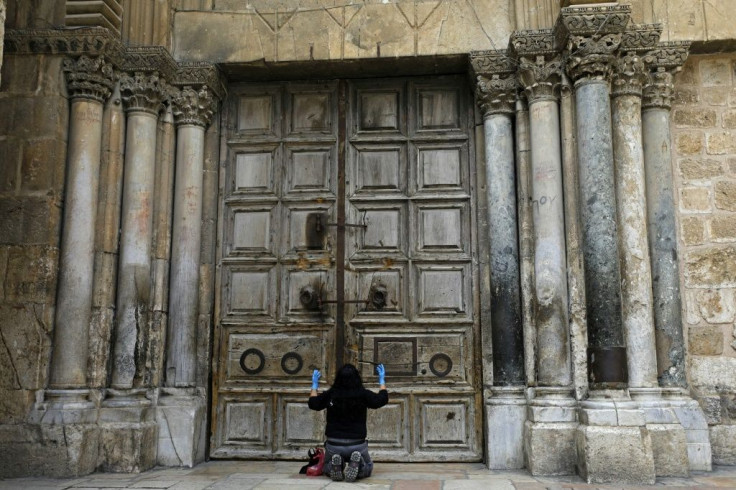Jerusalem's Church Of The Holy Sepulchre To Reopen Sunday
Jerusalem's Church of the Holy Sepulchre will reopen Sunday after a two-month closure due to the COVID-19 pandemic, Christian authorities in the holy city said.
"Starting on Sunday 24th this most Holy Place will be accessible again to the faithful for visits and prayers," leaders of the three denominations that share the site said in a statement on Saturday.
They said measures will be enforced to "avoid the risk of a new spread of the COVID-19 infection".
"At the beginning the number will be limited (to 50 persons) and the Basilica will be accessible only to those who have no fever or symptoms of infection and are wearing suitable face coverings," the statement said.
Visitors will be required to wear masks and maintain a two-metre (six-foot) distance from each other.
Worshippers will also be asked to "avoid any act of devotion that might include physical contact such as touching and kissing the stones, icons, vestments and the personnel in the Basilica", the statement added.
The church was closed on March 25 ahead of the Easter holiday as part of measures imposed to combat the spread of the virus in Israel and the Palestinian territories.

The Greek Orthodox, Armenian and Roman Catholic denominations share custody of the Holy Sepulchre.
More than 16,600 cases of the COVID-19 disease have been recorded in Israel, including 279 deaths.
In the occupied West Bank, Palestinian authorities have reported 368 cases and two deaths from the virus.
The church, located in Israeli-occupied and annexed east Jerusalem, is visited every year by millions of pilgrims.
Israel has begun to loosen lockdown measures, saying infection rates were slowing.
Religious sites were authorised to reopen on Wednesday on the condition that access be limited to 50 people at a time.
Access to the Western Wall, the holiest site at which Jews are permitted to pray, had been severely restricted but it reopened more widely to worshippers in early May.
The Al-Aqsa mosque -- Islam's third holiest site -- will reopen after Eid al-Fitr, the festival marking the end of holy fasting month of Ramadan on Sunday, the site's governing body announced Tuesday.





















